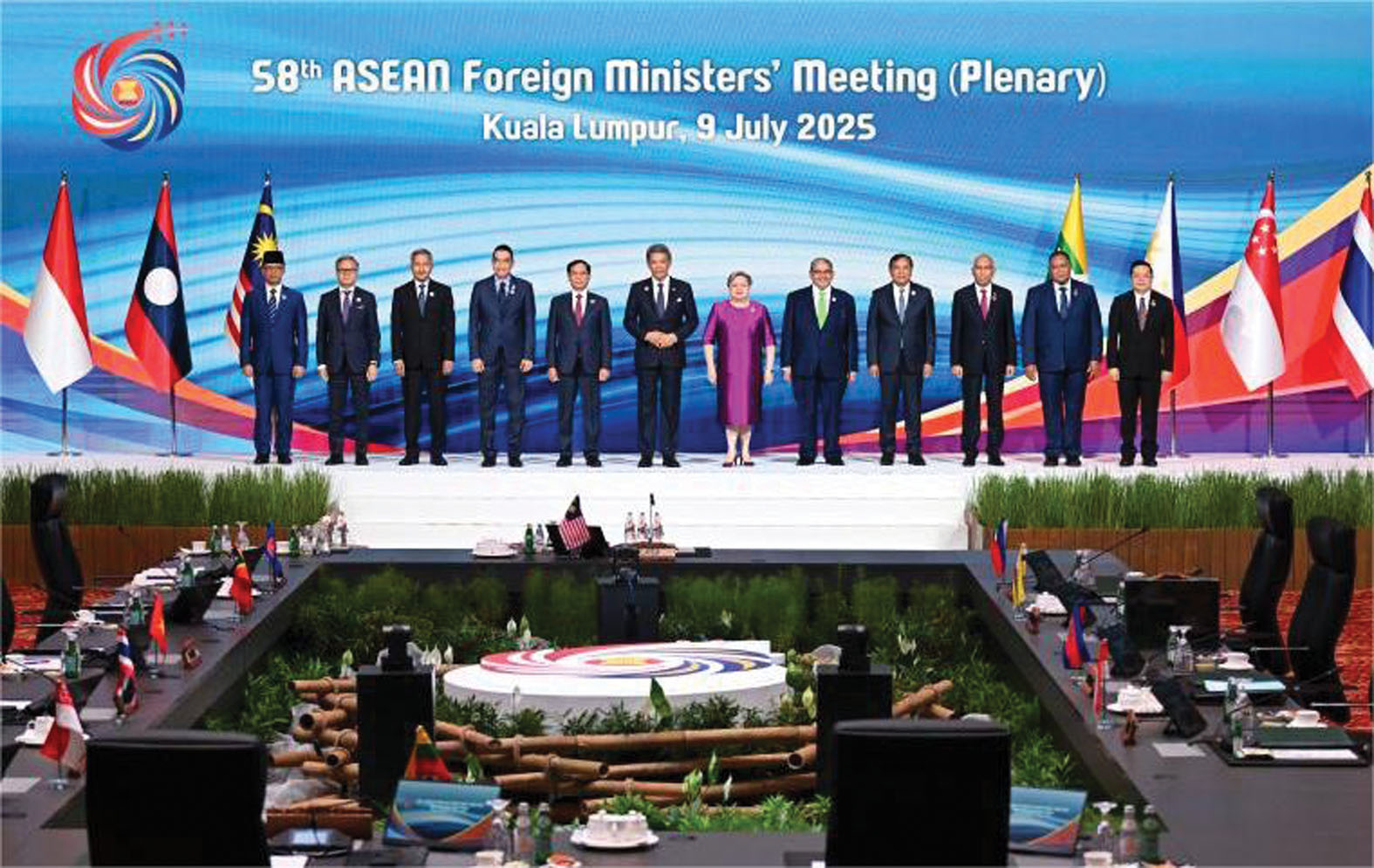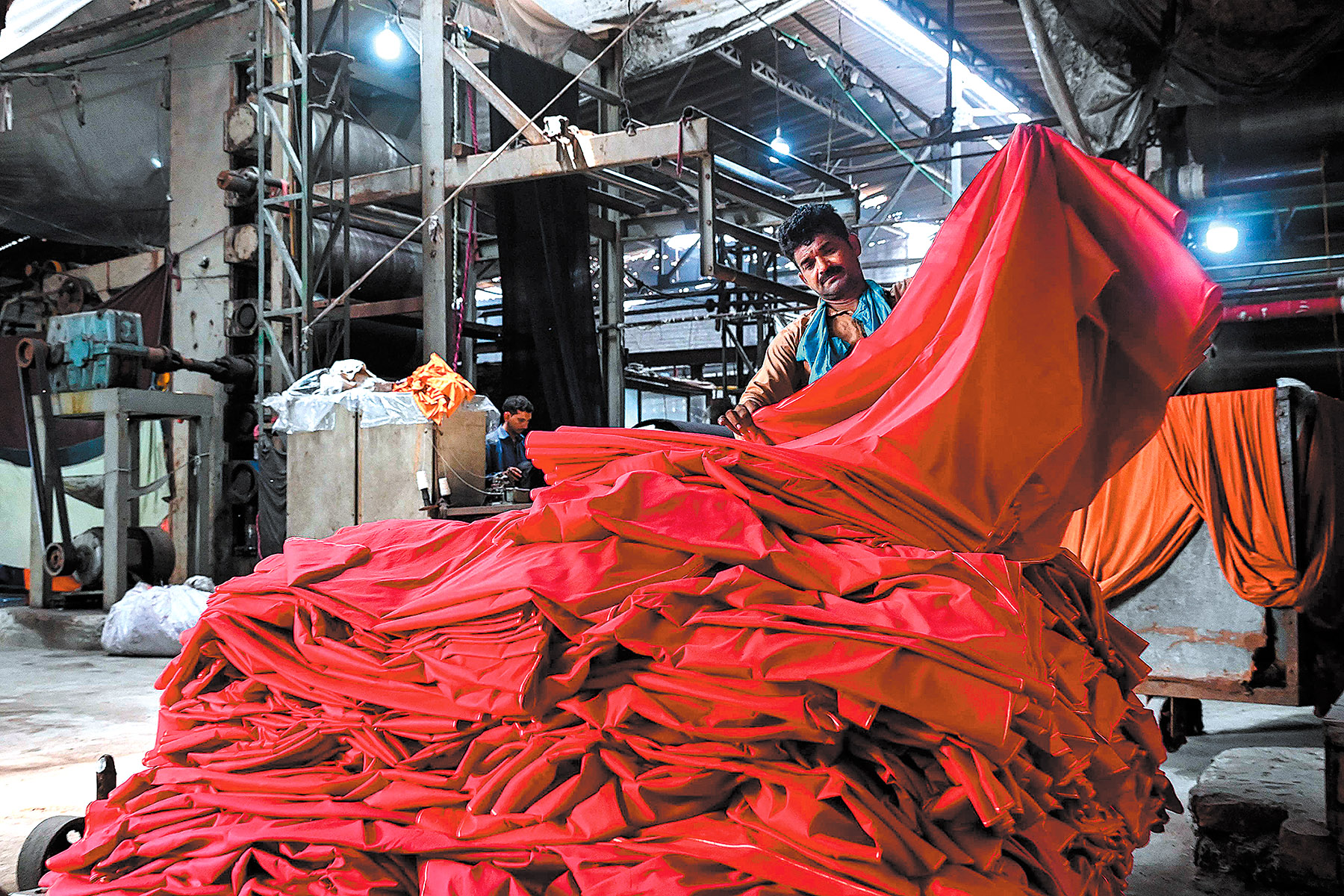Deadline extension sees more talks with US as duties deepen uncertainty, threaten exports

Several Asian nations contending with US President Donald Trump’s latest tariff threat have vowed to continue talks with the United States, viewing the move as a pressure tactic as he extended a July 9 deadline for implementing the “reciprocal tariffs” to Aug 1.
In a social media post on July 7, Trump said he had sent letters to the leaders of 14 countries — 10 of them in Asia — informing them that tariffs of 25 to 40 percent would take effect next month. The affected Asian countries are Bangladesh, Cambodia, Indonesia, Japan, Kazakhstan, Malaysia, Myanmar, Laos, South Korea, and Thailand.
Imports from Japan and South Korea will face 25 percent tariffs, according to the letters, which state that the new levies are separate from existing sector-specific tariffs.
Japanese Prime Minister Shigeru Ishiba called the US decision “truly regrettable” and said he would continue negotiations to pursue a mutually beneficial trade deal.
In Seoul, presidential policy chief Kim Yong-beom said that since President Lee Jae-myung took office on June 4, the new government has made all-out efforts to resolve the issue with Washington. However, Kim said there has not been enough time to reach a deal given the complexity of the matter, Yonhap News Agency reported.
Hafidzi Razali, CEO of advisory firm Strategic Counsel in Malaysia, told China Daily that despite previous talks with the US, most Asian countries are now facing higher tariffs, which will cut exporters’ margins, hurt the region’s economy and lead to job losses.

Kazakhstan and Malaysia face a 25 percent tariff, while Indonesia will be hit with 32 percent and Bangladesh with 35 percent. Cambodia and Thailand will be charged 36 percent, and Laos and Myanmar 40 percent on their exports to the US.
Malaysia’s Minister of Investment, Trade, and Industry Tengku Zafrul Abdul Aziz said the country remains committed to constructive engagement with the US. “While we understand concerns about trade imbalances, we firmly believe that dialogue and engagement are the best way forward,” the minister said, noting the US is Malaysia’s second-largest trading partner.
Japanese investment bank Nomura described the latest Trump tariff announcement as “more hawkish than expected”.
Hasan Nasbi, head of Indonesia’s Presidential Communications Office, told reporters on July 9 that a team led by Economic Coordinating Minister Airlangga Hartarto had arrived in Washington to begin tariff negotiations with the US.
Nasbi expressed optimism, citing Indonesia’s good relations with the US and other countries.
Leonardus Jegho in Jakarta and Yang Han in Hong Kong contributed to this story.
Contact the writer at prime@chinadailyapac.com


